Rural getaway transformed in 20 years since Two Mountains theory outlined
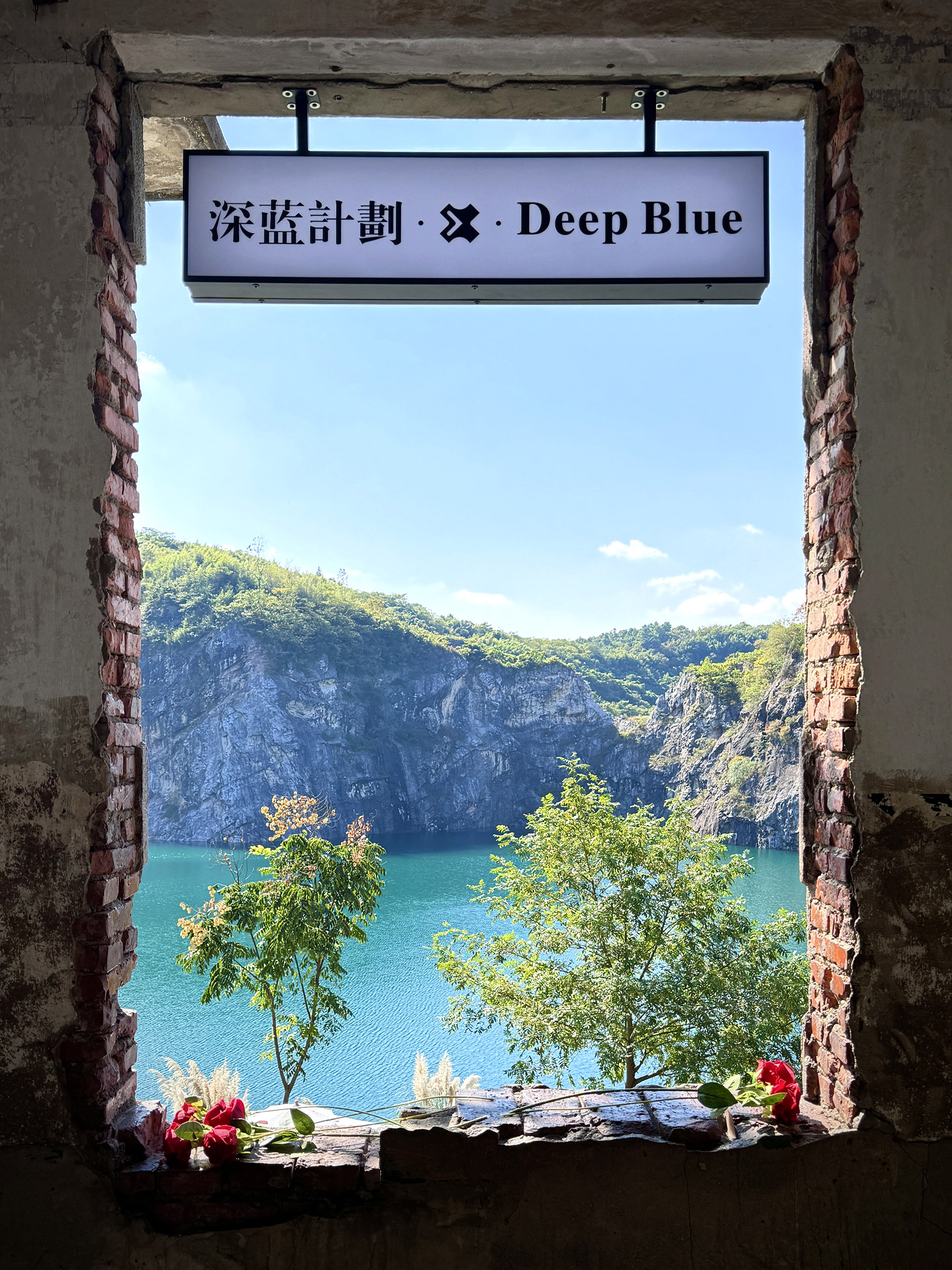
With no grand historical landmarks or scenic wonders, Anji county, nestled in a mountainous northern region of Zhejiang province, has transformed itself into one of China's most sought-after rural getaways.
Today, it is a sanctuary for urbanites seeking relaxation and a taste of slower, nature-centered living.
A vibrant community of creative entrepreneurs is redefining rural lifestyles to align with modern sensibilities in the county, which is able to preserve the rustic charm of the countryside while seamlessly catering to city residents' growing appetite for authenticity and tranquility.
Yucun village in Anji is the birthplace of the "Lucid waters and lush mountains are invaluable assets "theory, also known as the Two Mountains theory, which was put forward by President Xi Jinping.
READ MORE: Taking Xi's words to heart
On Aug 15, 2005, Xi, who was then Party chief of Zhejiang, made an inspection tour to Yucun. "We should not pursue economic growth at the cost of environment", for such growth is not true development, he said during the inspection.
In the two decades since, it has expanded from a 4.86-square-kilometer hamlet to a 245-square-kilometer cluster called "Greater Yucun", integrating 24 villages into a unified region featuring high-quality, modern, internationally oriented development.
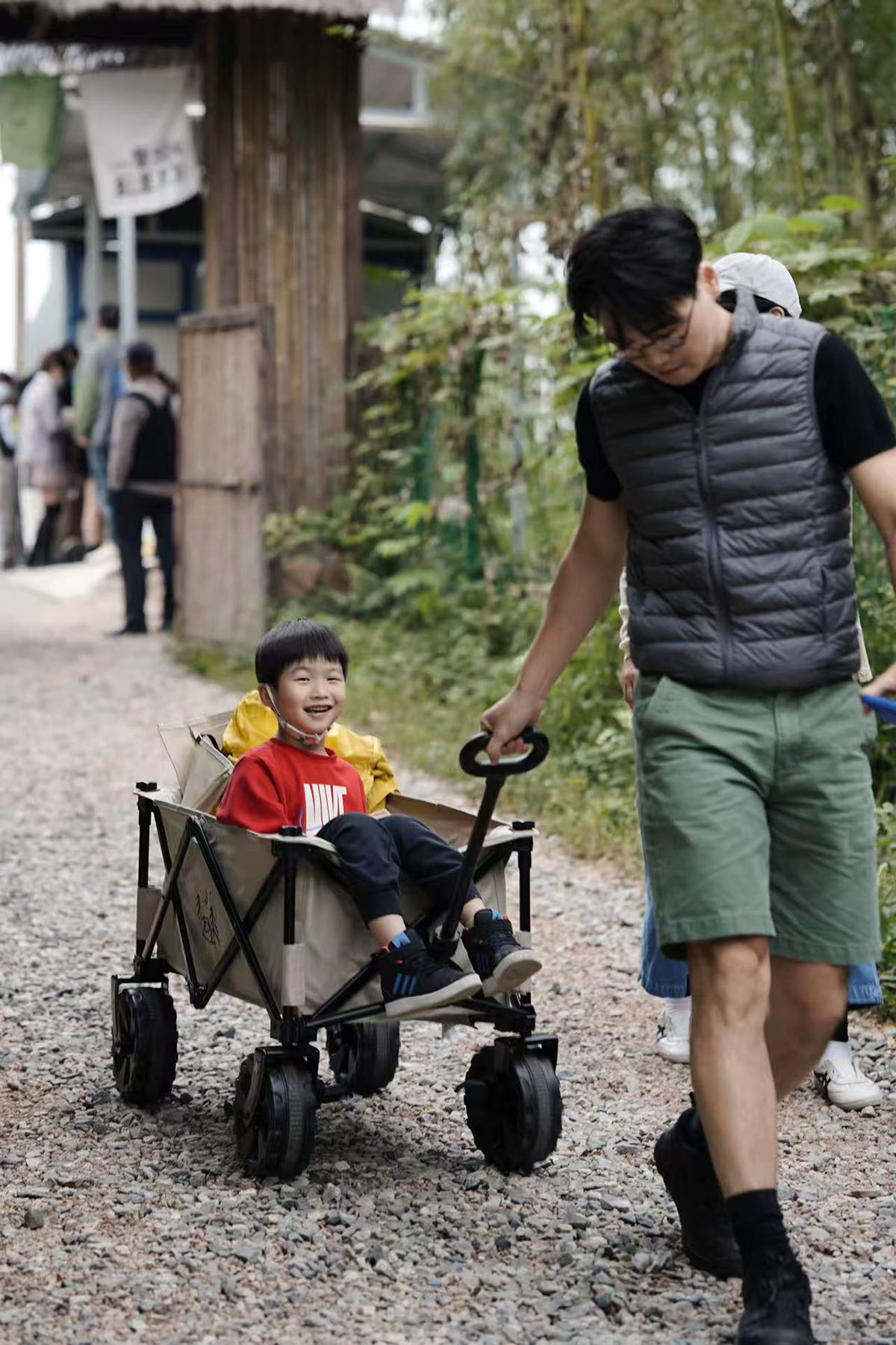
Mindful development
Deep Blue, a transformed quarry in Hongmiao village, Meixi town, has become a popular tourist spot known as "Mini Iceland."
In 2022, a team of more than 20 university students revitalized the area, creating a scenic 12.1-hectare leisure space with a cafe, observation deck, and more. Each visitor pays 68 yuan ($9.5) for entry, which includes a coffee or tea voucher.
"Our real service is to provide emotional value," said Yin Xiangxin, a core team member of Deep Blue, adding that the appeal of natural beauty and authentic beverages spans all ages, with many repeat visitors seeking the peaceful ambiance. The innovative approach has been a success, with the cafe generating over 10 million yuan in revenue within a year and achieving a daily sales record of 8,818 cups.
Yu Jiahui, a Yucun native born in 1997, returned from college in 2020 to start a business. In 2023, she renovated her father's vineyard to grow Anji white tea and created Yuyu Farm FUN Cafe, an immersive family-friendly ecological destination. Petting animals, tea picking and farming — are favorite activities of visitors.
"My family had been operating a bed-and-breakfast at the farm since 2020, but in 2023 we shifted our focus to the farm cafe," Yu said. "It's more of a space for guests to create their own experiences. In autumn, kids dig sweet potatoes; in other seasons they plant sunflowers or something else. Every crop offers a different hands-on activity."
At the end of 2024, Yu started a new project — an ecotourism site under the cover of 100 acres of bamboo forest, with flowers planted to develop an "under-forest economy" and enhance tourism. Opened in June 2025, the site features over 10,000 hydrangeas, with wooden cabins and bamboo pavilions offering fairy-tale-like photo ops of one hillside, roses, carnations, and redbuds blossom.
"We're also building a small bamboo house for tea drinking and scenic views," she added.
The He family from Qingdao, Shandong province, visited Anji for a three-day trip. They were drawn by Anji's beautiful scenery and cool mountain streams. Compared with urban life, they preferred the rural tranquility and immersive natural experiences.
"There's a lot for kids to enjoy, and the forest air is great," said the father, He Min. "We're from Laoshan in Qingdao and have our own rural tourism. But what's happening here is a return to true nature."
Wang Yucheng, Party secretary of Yucun village, has witnessed the transformation firsthand.
"The Two Mountains theory gave us direction. We started building a beautiful countryside in 2008, but tourism really exploded after 2013. Now 60 percent of our villagers work in tourism. In 2024, the collective income of our village reached 22.05 million yuan, with 11.31 million from business revenue. Per capita income hit 74,000 yuan," he added.
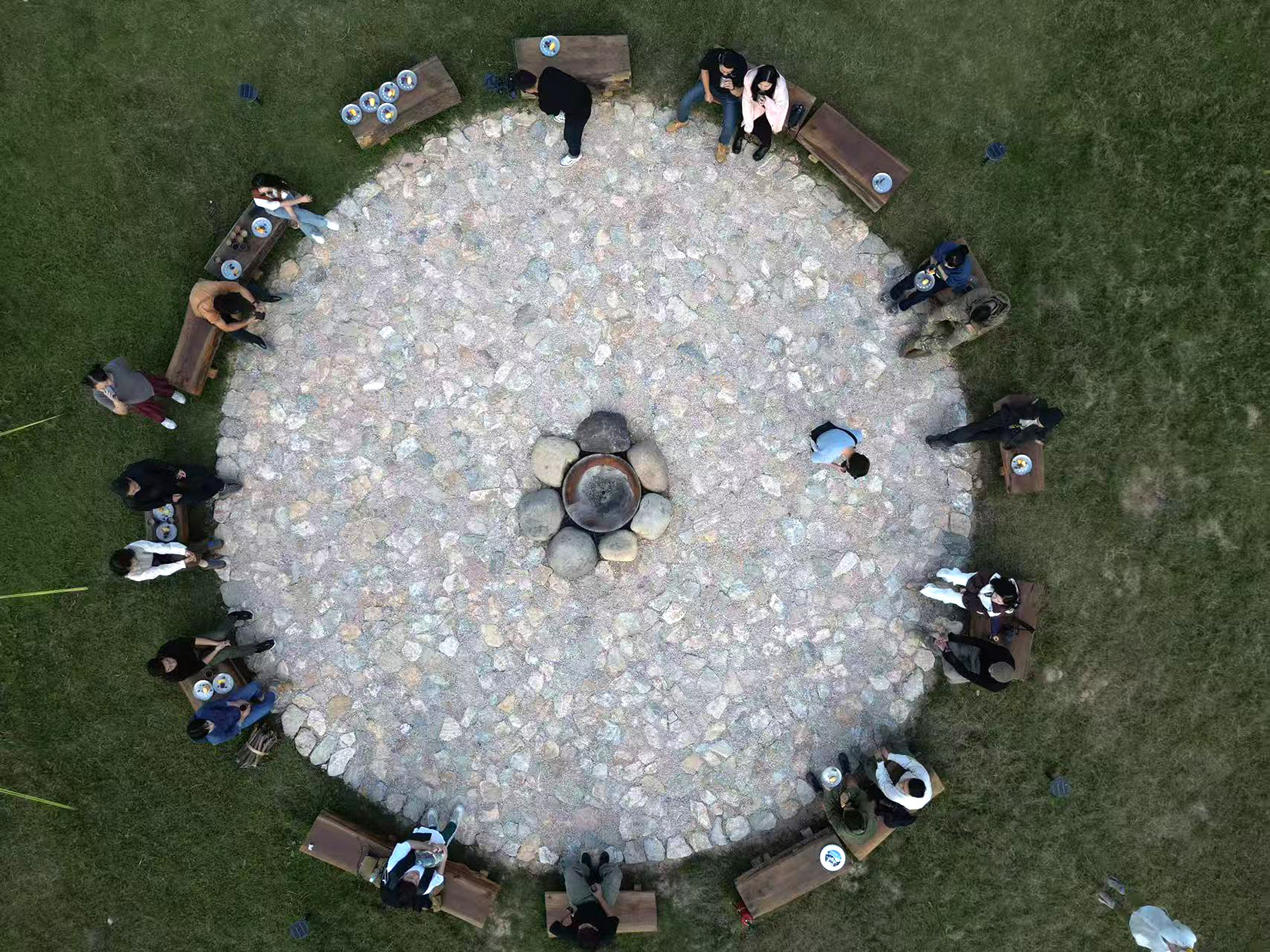
Cycling hub
Cycling has exploded in popularity among young people in recent years, and Anji has become a magnet for riders thanks to its smooth road surfaces, challenging climbs, and picturesque scenery.
Located beside rice paddies in Yinkeng village, Tianhuangping town, OKKA Cycling Club's striking blue building stands out. It was designed by a foreign architect invited by club founder Zhuo Li who integrated her own aesthetic preferences.
The Blue House, as it's known, serves as the club's base, housing a cafe, guest rooms, public showers, a bike garage, and a rooftop terrace — providing a one-stop hub for rest, refueling, and community gatherings.
"Tourism often creates artificial experiences. But cycling brings people into the real countryside — into villages and forests — allowing them to experience the genuine changing of the seasons and rural life," Zhuo said. "For those who love nature and the outdoors, a bicycle is a bridge to the countryside."
Originally from Yunnan province and raised in Sichuan province, she studied and worked in Belgium and the Netherlands. She later returned to China and worked in Shenzhen, Guangdong province, and then Shanghai before settling in Anji.
Her first visit to the county in the spring of 2019 left a lasting impression. "The air and views here are incredible. You don't need to travel abroad to find natural beauty," she said.
Anji's location in the Yangtze River Delta makes it highly accessible, and it's only 2 to 3 hours by car from cities like Shanghai, Suzhou and Hangzhou.
During China Daily's visit to OKKA last month, a group of riders left Suzhou at 6 am, arrived at the Blue House by 9 am, cycled until 3 pm, and returned to Suzhou.
"Our decision to settle here was driven by demand," Zhuo said. "The most passionate cycling community in China is in the Yangtze River Delta, and they need scenic, high-quality routes. Zhejiang's countryside excels in both nature and infrastructure," she said.
Wang, Party secretary of Yucun village, believes the emergence of new rural industries owes much to young people returning home. "Wherever rural development happens, young people are key. They bring back their lifestyles, needs, ideas, and creativity, which can unlock dormant local resources," Wang said.
Data shows that in the past three years, more than 48,000 young people have chosen to put down roots in Anji, bringing with them passion and creativity.
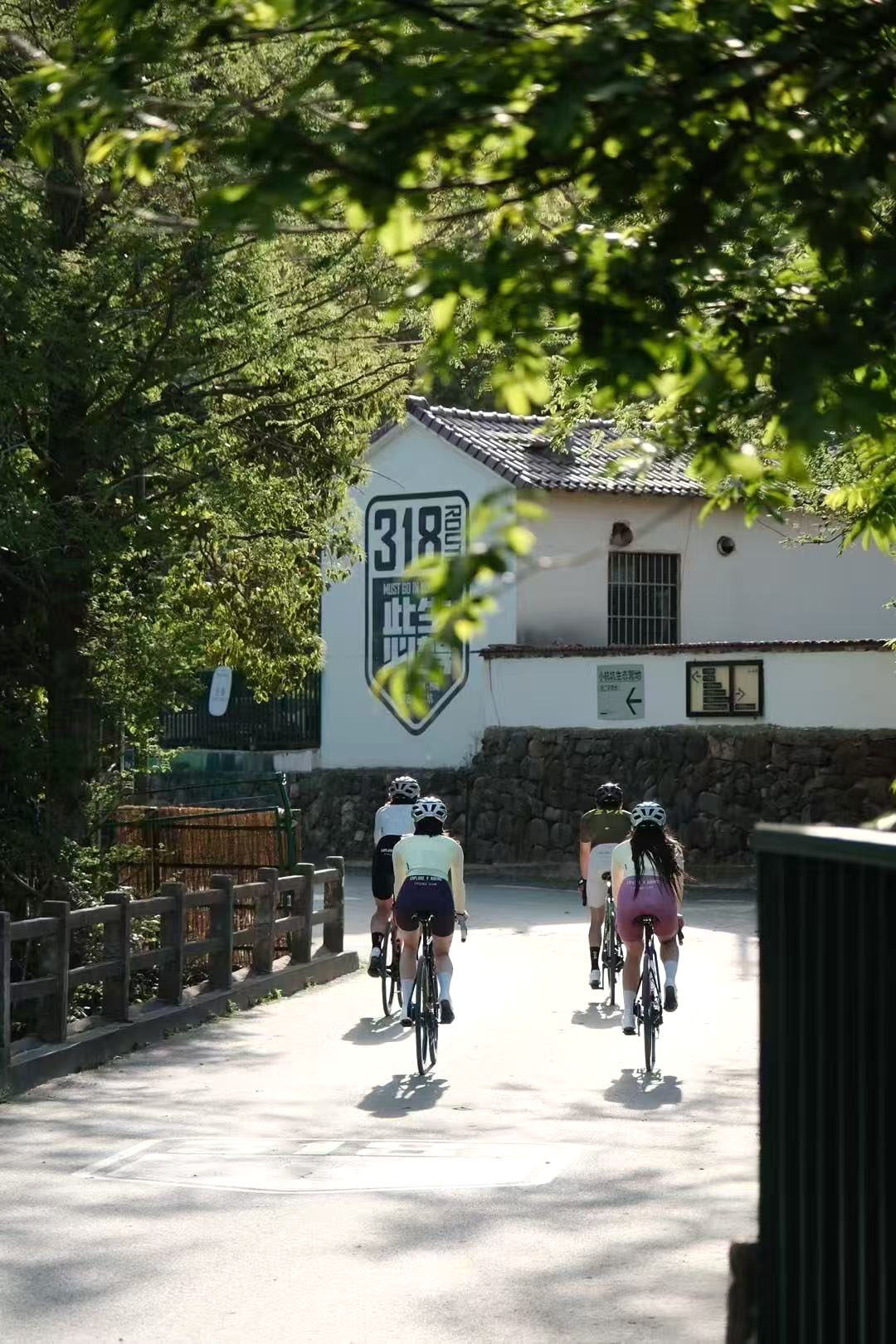
At Xiaohangkeng campsite in Xiayang village, a clear lake and green lawn entice visitors to set up their tents, sip coffee or tea, and enjoy gourmet food. Once isolated and underdeveloped, the village now earns over 12 million yuan a year in tourism revenue thanks to Bao Xin, the village Party secretary who was born after 1985.
His "Three Nos" concept — no trace left, no worry, no boundary — has driven the transformation.
"We live with nature. 'No trace' means protecting the environment. 'No worry' means visitors feel carefree. 'No boundary' means no separation between people and nature — or between ideas and development," Bao said.
Architect Chen Gu shares a similar vision. He is the founder and chief designer of Xiaoyin Half Day Village in Lingfeng National Tourist Resort. Once abandoned, Hengshanwu village is now a creative hub combining cultural heritage with boutique accommodations. Spanning 161 acres, the area features over 70 restored buildings and 19 distinctive bed-and-breakfasts.
From 2013 to 2016, the area underwent infrastructure upgrades. Chen preserved the village's terrain and vegetation, designing around its natural topography.
"There were no towering peaks, but the land had character," he said. "We retained all the original buildings and plants."
After completing renovations, Chen recruited a team of hosts to manage the B&Bs. The village has become a popular destination after opening in October 2017.
By the end of 2024, it had welcomed over 1 million visitors and generated 110 million yuan in annual revenue.
Zhang Min'er is one of the B&B hosts. She runs the Jam Guesthouse, known for its home-style cooking and natural surroundings.
Since it opened, it has expanded from seven rooms to 13, but maintained a simple rustic design that emphasizes harmony between people and nature. Both the front and back yards of the property are lush with attractive plants, which Zhang tends to every day.
"People who've spent too much time in the city get aesthetically fatigued by all the overly polished places. What they really want is something simple, more minimalist, so they can truly relax," she said.
Chen said last year the venue hosted more than 1,900 study tours, and in 2023 hosted over 2,200. "Groups from Southeast Asia, Taiwan, and Hong Kong now come frequently," he said.
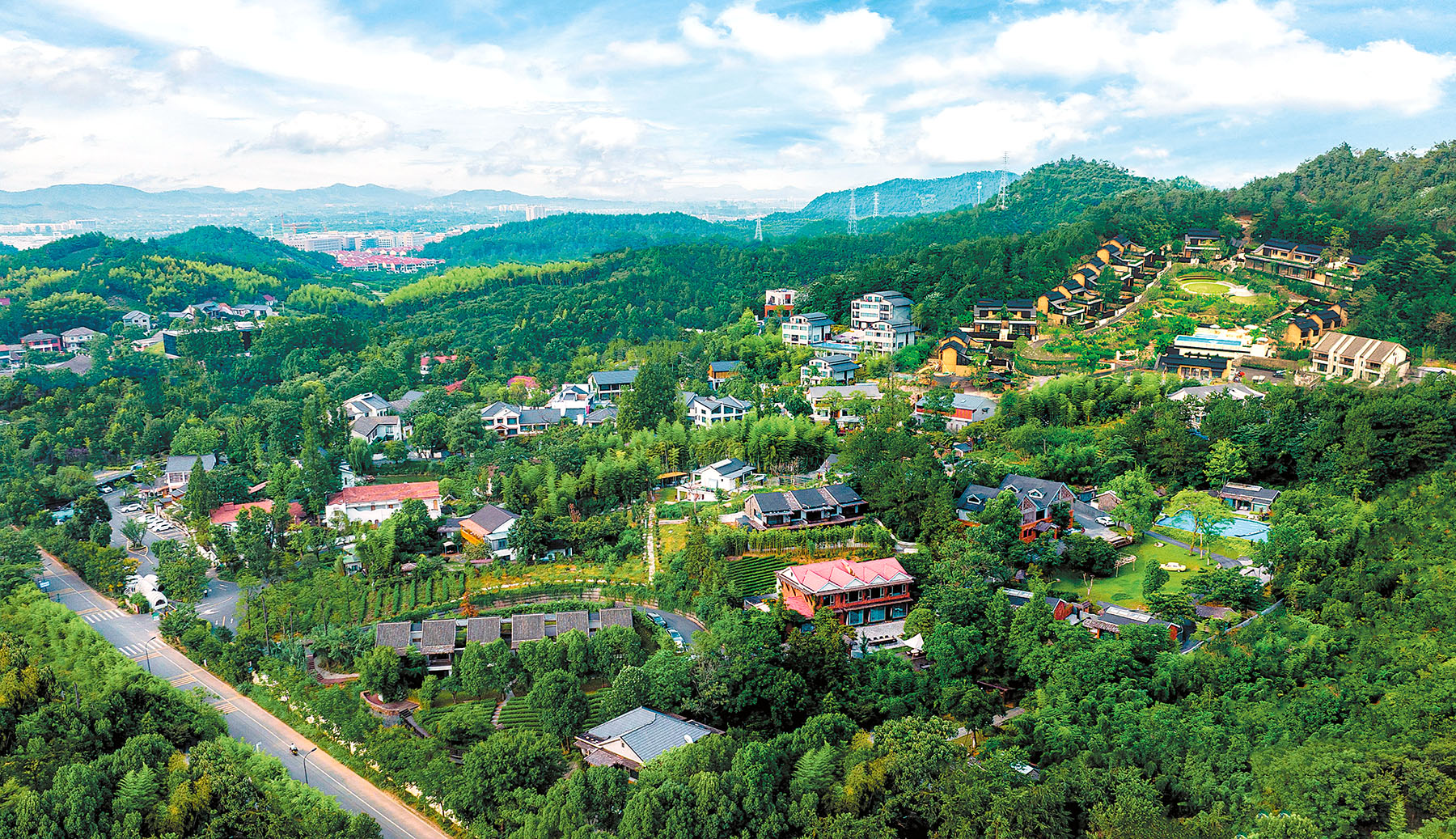
Dual approach
Heritage tourism, once confined to urban museums and lifeless archaeological sites, is now thriving in Anji thanks to the fusion of culture and nature.
Anji Archaeological Park takes in the Anji Site Museum and Tombs of Yue Nobles in Longshan, major historical and cultural sites protected at the national level.
But beyond these relics there are also natural sites such as tea terraces, pine forests and farmland, to attract both history buffs and urbanites seeking an escape.
This combination of history and nature acts as a "living classroom" for curious young minds.
A study tour program organized by Anji Archaeological Park engages children in four activities: archaeological history, cultural heritage preservation, nature exploration and hands-on farming.
ALSO READ: Tourism boom tipped for May Day break in China
During the program, children stay at Suzhiyuan Shell Camp in the middle of tea fields. "It's collective living," said Zhuang Yuan, the study tour director. "The Shell Camp can host 100 children, and each room has bunk beds for six."
Activities such as examining ancient artifacts, tending crops in terraced fields, or observing ecosystems in pine groves, make use of the park's resources.
The daily capacity for study and tour groups that don't require lodging is up to 1,600, Zhuang said.
According to the Ministry of Culture and Tourism, rural tourism in the first quarter of this year drew 707 million visits nationwide, an 8.9 percent year-on-year increase. Revenue reached 412 billion yuan, with 7.12 million people employed in the sector.
"Rural tourism in Zhejiang is booming," said Wang Tonglin, head of the provincial Agriculture and Rural Affairs Department. "With farmers' markets, local cuisine, countryside homestays, and rustic landscapes, this is the dream our city folks long for — poetry and faraway land."
Contact the writer at chenye@chinadaily.com.cn


